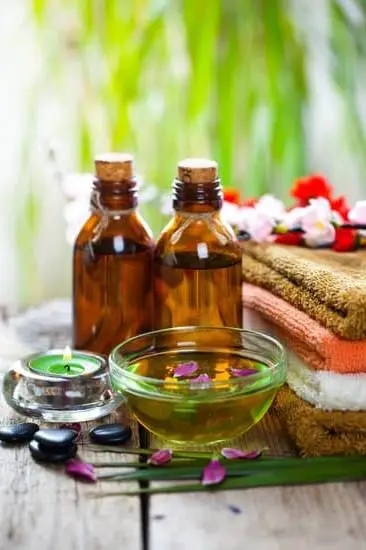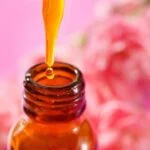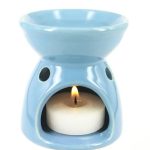Aromatherapy has long been touted as a powerful tool for stress relief, harnessing the natural benefits of essential oils to promote relaxation and well-being. The use of aromatherapy for stress relief has gained popularity not only for its soothing effects but also for its potential impact on mental and emotional health.
This article will explore the science behind aromatherapy, popular essential oils for stress relief, how to use aromatherapy in daily life, the mind-body connection, available aromatherapy products, research supporting its effectiveness, and its role in holistic stress management.
The science behind aromatherapy lies in the connection between scent and stress relief. Essential oils have been found to interact with the olfactory system and the brain’s limbic system, which regulates emotions and memories. Certain scents have been shown to have a calming effect on the nervous system, making them valuable tools for managing stress and promoting relaxation.
Popular essential oils such as lavender, chamomile, and eucalyptus are particularly celebrated for their stress-relieving properties. These oils can be used in various ways, including through diffusers, rollerballs, or added to bath water. As more people seek natural remedies for stress relief, understanding how to use these essential oils effectively is becoming increasingly important.
The Science Behind Aromatherapy
The connection between scent and stress relief goes beyond just enjoying a pleasant aroma. The science behind aromatherapy reveals that certain scents can have a direct impact on the brain, influencing emotions, mood, and stress levels.
When inhaled, the molecules from essential oils stimulate the olfactory system and send signals to the limbic system of the brain, which is involved in regulating emotions. This process can trigger a cascade of physiological responses, including the release of neurotransmitters like serotonin and endorphins, which are known to promote relaxation and reduce stress.
Furthermore, research has shown that specific essential oils have been found to have anxiolytic, or anxiety-reducing, effects. For example, lavender oil has been studied extensively for its calming properties and its ability to lower cortisol levels – a hormone often associated with stress.
Additionally, studies have also demonstrated that inhaling chamomile essential oil can reduce symptoms of anxiety and promote relaxation. Eucalyptus oil is another popular choice for stress relief due to its invigorating scent that can help clear the mind and ease mental fatigue.
Understanding how aromatherapy stress relief works also involves considering individual differences in scent perception and personal preferences. Some people may respond more positively to certain scents based on their past experiences or cultural background. Therefore, it’s important to explore different essential oils to find what works best for you personally.
| Essential Oil | Benefits |
|---|---|
| Lavender | Calming properties, lowers cortisol levels |
| Chamomile | Reduces symptoms of anxiety, promotes relaxation |
| Eucalyptus | Invigorating scent, eases mental fatigue |
Popular Essential Oils for Stress Relief
Aromatherapy has been used for centuries as a natural way to promote relaxation, reduce stress, and improve overall well-being. One of the key elements of aromatherapy is the use of essential oils, which are highly concentrated plant extracts that contain the natural aroma and beneficial properties of the plant. When it comes to stress relief, there are several popular essential oils that have been shown to be particularly effective, including lavender, chamomile, and eucalyptus.
Lavender essential oil is perhaps one of the most well-known and widely used essential oils for stress relief. It has a calming and soothing scent that can help to reduce anxiety and promote relaxation. Studies have shown that inhaling lavender essential oil can lead to a decrease in levels of the stress hormone cortisol, making it an effective tool for managing stress.
Chamomile essential oil is another popular choice for promoting relaxation and reducing stress. Known for its sweet and fruity aroma, chamomile has been used for centuries as a natural remedy for anxiety and insomnia. Inhaling chamomile essential oil can have a calming effect on the mind and body, making it an ideal choice for those looking to alleviate stress.
Eucalyptus essential oil is often associated with respiratory health, but it also has properties that make it beneficial for stress relief. The fresh, invigorating scent of eucalyptus can help to clear the mind and promote mental clarity. Inhaling eucalyptus essential oil can provide a refreshing boost when feeling overwhelmed or stressed out. Studies have also shown that eucalyptus essential oil has anti-anxiety effects when inhaled, further highlighting its potential as a stress-relief aid.
| Essential Oil | Benefits |
|---|---|
| Lavender | Reduces anxiety and promotes relaxation |
| Chamomile | Calming effect on the mind and body |
| Eucalyptus | Promotes mental clarity and reduces anxiety when inhaled |
How to Use Aromatherapy for Stress Relief
Aromatherapy is a powerful tool for managing stress and promoting relaxation, and incorporating essential oils into your daily routine can be a simple and effective way to experience the benefits. Whether you are new to aromatherapy or a seasoned enthusiast, there are several ways to use essential oils for stress relief.
Diffusing Essential Oils
One of the most popular methods for using essential oils is through diffusers. These devices disperse the oils into the air, allowing you to breathe in the therapeutic scents. To use aromatherapy for stress relief, simply add a few drops of your favorite essential oil to a diffuser and let it run for 15-30 minutes in your home or office.
Topical Application
Another common way to use essential oils for stress relief is through topical application. By diluting essential oils with a carrier oil such as coconut or almond oil, you can create your own massage oil or body lotion. This allows you to directly apply the oils to your skin, where they can be absorbed and provide their calming effects.
Inhalation Techniques
Inhaling essential oils directly from the bottle or by adding a few drops to a tissue can provide quick and immediate relief from stress. You can also create your own inhalation blend by adding a few drops of essential oil to a bowl of hot water and inhaling the steam. This method is especially useful for relieving tension headaches or anxiety.
Incorporating aromatherapy into your daily routine doesn’t have to be complicated, and with these simple tips, you can start experiencing the benefits of essential oils for stress relief right away. By experimenting with different methods of using essential oils, you can find what works best for you and enhance your overall well-being.
Aromatherapy and the Mind-Body Connection
Aromatherapy has been used for centuries as a holistic approach to promoting overall well-being, and its impact on mental and emotional health is undeniable. The connection between scents and emotions is a powerful one, and aromatherapy harnesses this relationship to provide stress relief and promote relaxation. Here are some ways in which aromatherapy can positively impact the mind-body connection:
- Aromatherapy can help reduce feelings of anxiety and depression by promoting relaxation and soothing the mind.
- Certain essential oils, such as lavender and chamomile, have been shown to have calming effects on the nervous system, helping to alleviate stress and promote better sleep.
- The inhalation of essential oils can trigger the release of neurotransmitters in the brain, such as serotonin and dopamine, which play a key role in regulating mood and emotions.
Incorporating aromatherapy into your daily routine can be a simple yet effective way to support mental and emotional well-being. Whether through the use of diffusers, rollerballs, or scented candles, the soothing scents of essential oils can have a profound impact on our overall state of mind. When used consistently, aromatherapy can help create a sense of calm and balance in our daily lives.
Research has also shown that the use of aromatherapy in conjunction with other stress-relief techniques such as meditation or yoga can amplify its benefits, making it an integral part of a holistic approach to managing stress. By tapping into the power of scent, aromatherapy offers a natural and gentle way to support mental clarity, emotional stability, and overall wellness.
Overall, understanding how the aromatherapy stress relief works involves recognizing its ability to positively influence our mental and emotional well-being through the power of scent. Incorporating aromatherapy into our self-care routines can help create a sense of balance, calmness, and relaxation amidst our daily stresses.
Aromatherapy Products for Stress Relief
Diffusers
One of the most popular and effective ways to use aromatherapy for stress relief is through the use of diffusers. These devices are designed to disperse essential oils into the air, allowing you to inhale the scent and experience its calming effects.
There are several types of diffusers available, including ultrasonic diffusers, nebulizing diffusers, and heat diffusers. Ultrasonic diffusers are particularly popular as they not only disperse the essential oil but also humidify the air, creating a soothing and relaxing environment.
Rollerballs
Another convenient way to use aromatherapy for stress relief is through rollerballs. These are small bottles of essential oils that come with a rollerball applicator, making it easy to apply the oil directly to your skin. Popular areas for application include pulse points on the wrists, temples, and behind the ears. The gentle massaging action of applying the oil combined with the inhalation of the scent can provide quick and effective relief from stress and anxiety.
Other Aromatherapy Tools
In addition to diffusers and rollerballs, there are a variety of other aromatherapy tools that can be used for stress relief. These include inhalers, candles, and room sprays infused with essential oils. Aromatherapy pillows and eye masks are also available for promoting relaxation and better sleep.
The versatility of these tools allows individuals to incorporate aromatherapy into their daily routines in a way that best suits their lifestyle and preferences. Understanding how each tool works can help individuals make informed choices about which products will be most effective for their own stress management needs.
Research on Aromatherapy and Stress Relief
Aromatherapy has been used for centuries as a natural way to promote relaxation, reduce stress, and improve overall well-being. But how exactly does aromatherapy stress relief work? Research on aromatherapy and stress relief aims to provide evidence supporting the effectiveness of this holistic approach to managing stress.
Studies have shown that inhaling the aroma of certain essential oils can have a positive impact on mood and emotions. The olfactory system, which is responsible for our sense of smell, is closely connected to the parts of the brain that regulate emotions and memories. When essential oils are inhaled, their molecules travel through the nasal passages and stimulate these areas of the brain, which can lead to feelings of calmness and relaxation.
Here are some key findings from research on aromatherapy and stress relief:
- A study published in the Journal of Alternative and Complementary Medicine found that inhaling lavender essential oil was associated with reduced anxiety levels in patients undergoing medical procedures.
- Another study published in Evidence-Based Complementary and Alternative Medicine reported that inhalation of bergamot essential oil led to significant reductions in heart rate and blood pressure in participants under chronic stress.
- Research conducted at Ruhr University Bochum in Germany concluded that exposure to the scent of rose oil resulted in lower levels of cortisol, a hormone associated with stress, in female participants.
These findings support the idea that aromatherapy can be an effective tool for managing stress and promoting emotional well-being. As more research is conducted, we gain a better understanding of how specific essential oils can be used to target different aspects of stress relief. Whether it’s through inhalation or topical application, incorporating aromatherapy into daily routines has the potential to positively impact mental and emotional health.
Aromatherapy as a Holistic Approach to Stress Management
In conclusion, the practice of aromatherapy has been shown to be a powerful tool in managing stress and promoting overall wellness. By harnessing the natural scents of essential oils, aromatherapy can have a profound impact on both the mind and body. The connection between scent and stress relief has been studied and understood, with certain essential oils such as lavender, chamomile, and eucalyptus being particularly effective in promoting relaxation and reducing anxiety.
Using aromatherapy for stress relief can be easily incorporated into daily routines through various methods such as diffusers, rollerballs, or simply adding a few drops of essential oil to a bath or massage oil. The research on aromatherapy and stress relief continues to support its effectiveness in alleviating tension and promoting a sense of calm.
Furthermore, the mind-body connection plays a significant role in how the aromatherapy stress relief works – by activating the olfactory system, essential oils can trigger emotional responses that contribute to a greater sense of well-being.
As a holistic approach to stress management, aromatherapy has the potential to complement other self-care practices such as meditation, yoga, and mindful breathing exercises. By incorporating aromatherapy into overall wellness routines, individuals can create an environment that supports relaxation and emotional balance. Ultimately, understanding how aromatherapy stress relief works allows individuals to harness the power of scent for improved mental and emotional well-being.
Frequently Asked Questions
How Does Aromatherapy Work for Stress?
Aromatherapy works for stress by using essential oils to stimulate the olfactory system, which in turn can have a calming effect on the mind and body. Certain scents like lavender, chamomile, and bergamot are known for their stress-reducing properties.
How Do You Use Aromatherapy Stress Relief?
Aromatherapy stress relief can be used in various ways. One common method is through inhalation by adding a few drops of essential oil to a diffuser or warm bath. Another way is through topical application, such as mixing essential oils with carrier oils and applying them to the skin.
How Does Aromatherapy Treatment Work?
Aromatherapy treatment works by utilizing the natural properties of essential oils to promote physical, emotional, and mental well-being. These oils are often derived from plant extracts and are carefully selected based on their therapeutic effects. Aromatherapists may use diffusers, steam inhalation, or massage techniques to administer the treatment.

Are you looking for a natural way to improve your health and wellbeing?
If so, aromatherapy may be the answer for you.





